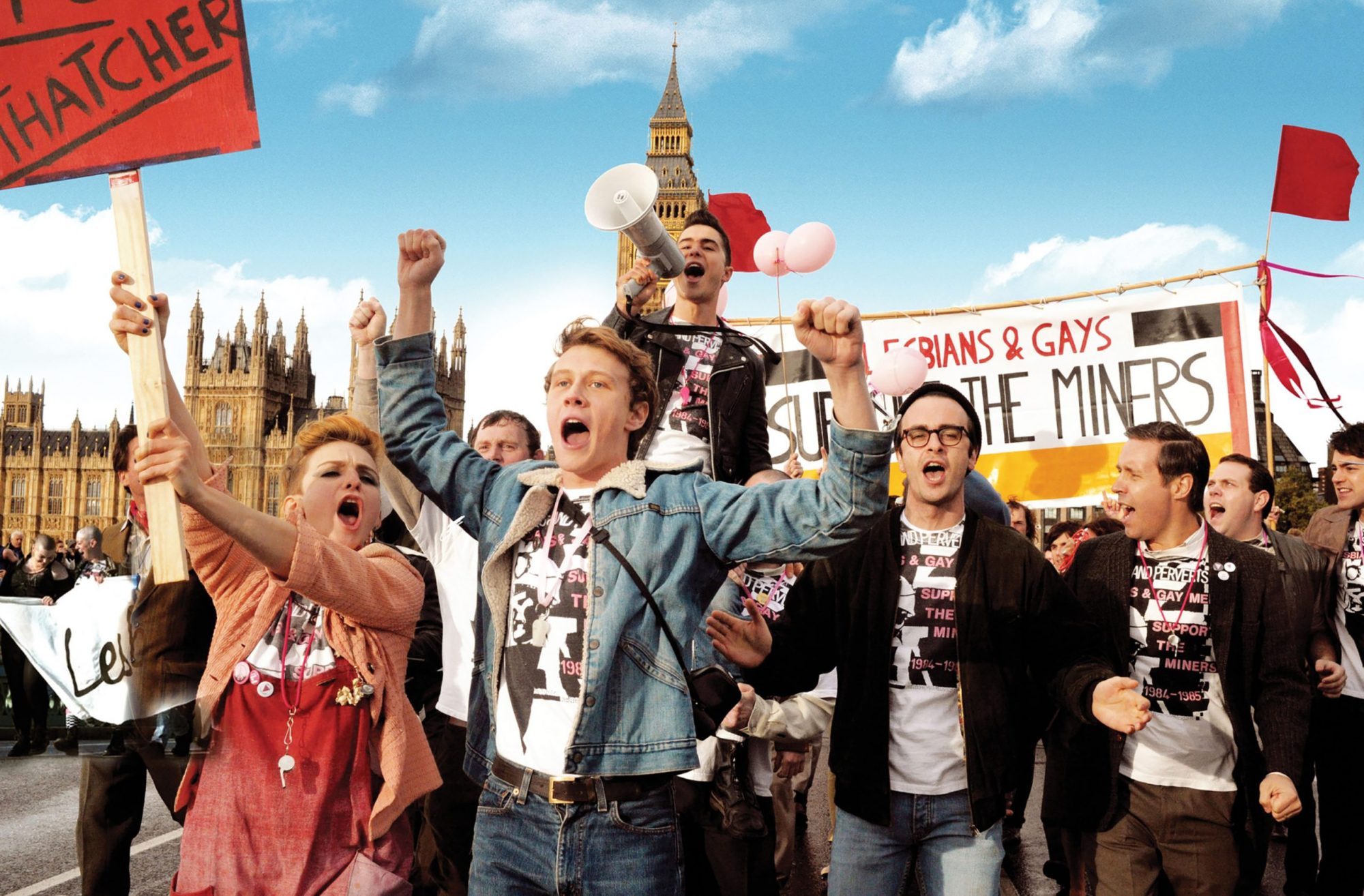
- Golden Globe Awards
A Celebration of “Pride”
When the film PrideBased on a true story, Pride takes us back to 1984 Great Britain when the country was embroiled in a divisive miner’s strike. Frustrated with their own repression under the Thatcher government, a group of lesbian and gay activists decided to help their embattled countrymen by raising money for families in a small Welsh village economically ravaged by the strike.
As young activist Mark (Ben Schnetzer) argues to his friends, “What’s the point of supporting gay rights and nobody else’s?” he enlists a crew of companions to support his mission of mercy. The only problem is the hyper-masculinity of some of the miners who are resistant to accepting support from people they deem ‘perverts.’ But in their journey of enlightenment, one of the town’s leaders has an epiphany and rallies his neighbors. “When you’re in a battle so much bigger than you, to find out you had a friend you didn’t know existed, that’s wonderful.”
“I had never heard of the story until I read the script,” noted Bill Nighy during a 2014 HPFA interview for the film. Playing the character of Cliff, a man with his own secret, he continues his insight. “I hadn’t met anyone else who heard of it either which is extraordinary given the nature of the story. The Miner’s Strike was, for the most part, misrepresented when it was happening so to have a bit of the truth come out and to see this community of men and women treated with some respect and dignity was deeply refreshing.”
It seems rather shocking to acknowledge that just over three decades ago, the national newspaper in Great Britain described the gay community as the slime of society. For Nighy, to witness the progress made has emboldened him with his own sense of pride. “These two groups came together so beautifully and so comprehensively, was a considerable achievement. It was a complete revelation and therefore made it even more exciting.”
For Stephen Beresford, the writer of the film, his journey to the movie began with an argument with his then-boyfriend over whether gay people were still political. Britain was going through a second much smaller miner strike in 1995 and he felt reluctant to help due to the miners’ perceived resistance to the gay community. “He told me the story of the 1984 incident and in that instant, everything changed. My worldview went from insular to global. I refer to that as ‘the lost story’ because it got lost in history. Making a mainstream movie about this seemed impossible but then we met people who believed in it and made it happen.”
In light of his epiphany, Beresford does believe the LGBTQ+ community, like he himself back in 1995, would actually like to be less political but the march for equality keeps the struggle alive.
“We have become more individualistic and more isolationist,” he notes about the greater society we all live in. “I think even with all the infinite ways in which we can stay connected, we lose touch. What is so powerful about the film Pride is that even with all our differences, we can find a common ground. Today young people can show up virtually. We can click and support something. We can sign petitions. But when you are face to face with someone from a different background, someone with a different view, there is human interaction. That is what melts prejudice. So, the message for me is for people to just show up. That is very powerful.”

